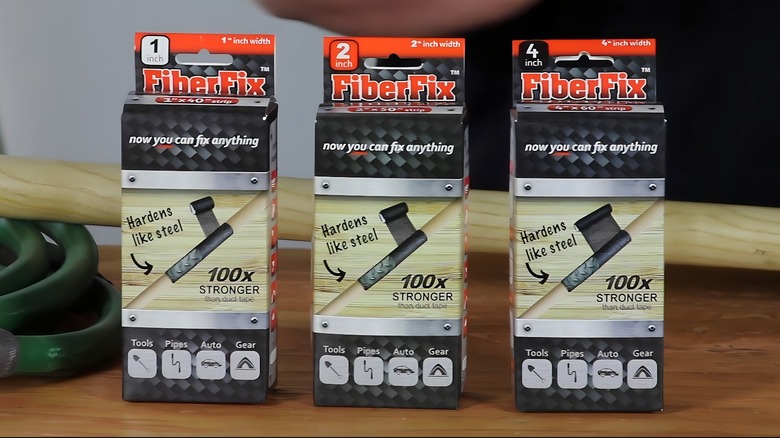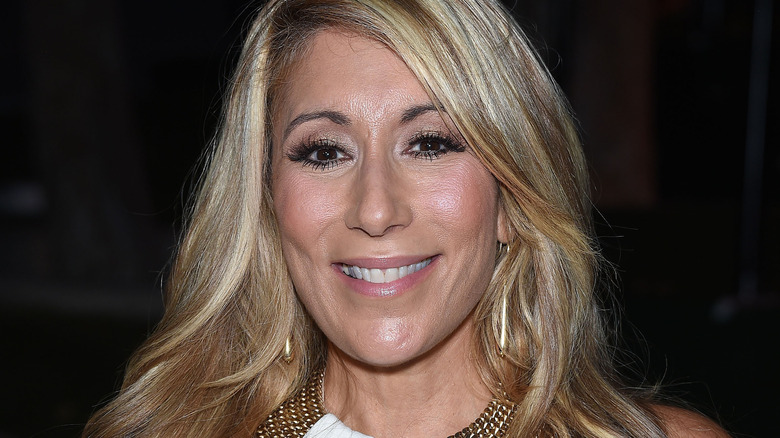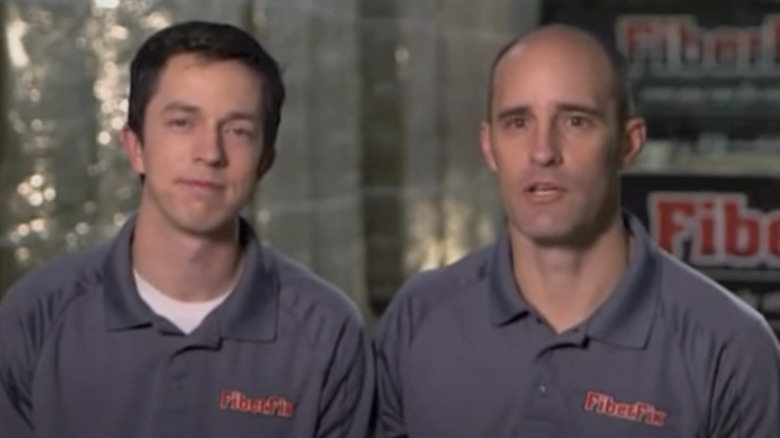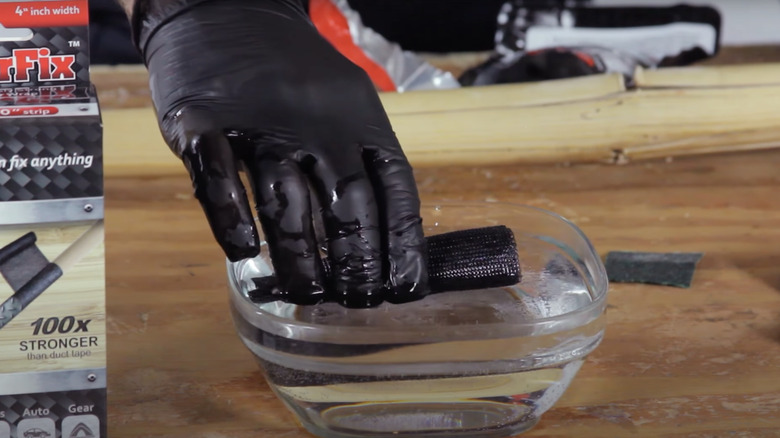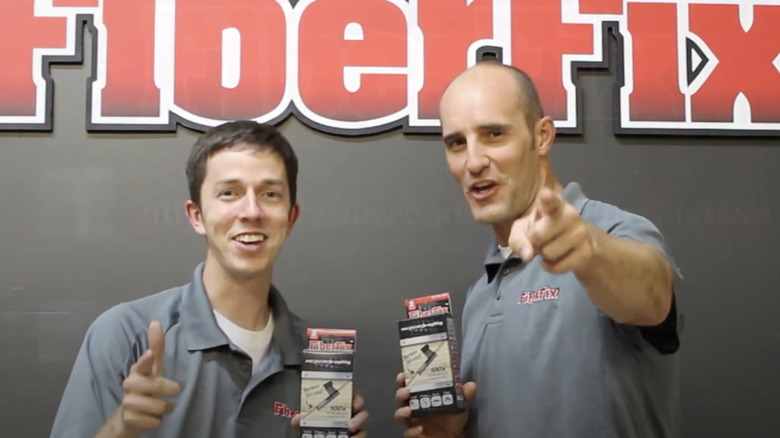Whatever Happened To FiberFix After Shark Tank Season 5?
We may receive a commission on purchases made from links.
FiberFix, an adhesive repair wrap, was presented by Spencer Quinn and Eric Child on ABC's "Shark Tank" in 2013 as a stronger alternative to duct tape. The wrap, which is made from durable, industrial fibers and resin, is capable of easily tackling a variety of repairs. On the show, Child and Quinn showed how the ultra-sticky tape could be used to craft a hammer strong enough to break cinder blocks with two small wooden boards. If you've snapped your hockey stick in half or broken the leg of a chair, FiberFix will repair it in minutes. It can also successfully seal leaky pipes.
To use FiberFix, you must cut a piece from the roll, wet it with water, and wrap it around the broken object. The water-activated adhesive must then sit for 10 to 15 minutes until it's dry. In that time, it will harden and permanently mend the item. FiberFix can also be sanded down and painted to make the item look like it was never broken in the first place.
What happened to FiberFix on Shark Tank?
The founders of FiberFix went on Shark Tank looking for $90,000 in exchange for 10% of their company. When Child and Quinn presented their product on the show, several of the sharks were chomping at the bit to make a deal. Kevin O'Leary was the first to make an offer, explaining that he'd give them the $90,000 without taking the equity. Instead, O'Leary wanted 70 cents for every product sold until his money was repaid and 20 cents afterward.
Robert Herjavec cut in to offer the founders the deal they originally wanted, but Lori Greiner was interested as well. Greiner told the pair she would give them $250,000 for 18% of their company. As the sharks squabbled over which deal would be best for FiberFix, Greiner said, "I'll tell you honestly. You really need the right partner. You need somebody who knows the ropes." In the end, Quinn and Child formed a deal with Greiner — $120,000 for 12% equity — in hopes that Greiner's QVC connections would skyrocket their business.
FiberFix after Shark Tank
After the show aired, FiberFix exploded in popularity. "The day after Shark Tank aired, we were able to get one of the most coveted positions on QVC," Quinn said in an ABC follow up (via YouTube). "And we were able to sell through 45,000 rolls of FiberFix in only 10 minutes." With the success from their deal with Greiner, the company had to move into a larger warehouse to keep up with the demand for their product and partnered with a factory to make 10,000 rolls of the product every day.
The founders began selling their repair wrap in Ace Hardware, True Value, Home Depot, Lowes, and various other retail stores. "Prior to Shark Tank, we'd only done about $300,000 in sales. But since Shark Tank, in only three months, we've done almost $6 million in sales nationwide," Child said during the follow up. "We like to think that we're continuing the tradition of American Innovation. It's awesome to be able to create jobs and provide a living wage for lots of employees."
Is FiberFix still in business?
Despite FiberFix's success with selling their products in thousands of stores worldwide, grossing $50 million in retail sales in six years after the show, and creating a variety of new products, the founders left FiberFix behind near the end of 2018. Child and Quinn sold FiberFix to J-B Weld, which sells a variety of adhesive repair products. This dissolved Child and Quinn's partnership with Greiner.
While FiberFix's website domain is currently for sale and their social media accounts are no longer active, it's still possible to find their unique product. J-B Weld now sells FiberFix under the name of FiberWeld, which can be found on their website and on Amazon. "FiberFix first appeared on Shark Tank in 2013, and within five years, has grown into a full family of products available in over 20,000 retail locations around the world. We believe J-B Weld is the perfect company to lead FiberFix repair solutions to incredible long-term success," Child said in a press release.
What's next for FiberFix's founders?
After selling their popular product to J-B Weld, the founders of FiberFix began new business ventures. Child is still currently CEO of Spark Innovation LLC, which was the parent company of FiberFix. Spark Innovation now helps entrepreneurs get their products on the market. From developing designs to increasing sales and finding distribution, Spark Innovation assists businesses in growing. They currently sell products from ScreenMend, Illumibowl, Bobelo, CoverGrip, and Tubelox.
In 2021, Quinn became the senior e-commerce manager of Pattern, another company that helps businesses grow and sell more of their products. Pattern currently sells products in 60 different countries, has 1,150 employees across the globe, and has nine global distribution centers. Though both Quinn and Child have left FiberFix behind, their adhesive wrap opened a world of possibilities for them, and they continue to work with their passion of growing businesses and selling interesting products.
